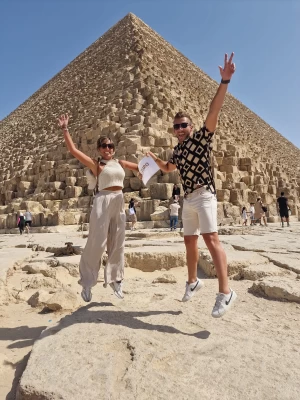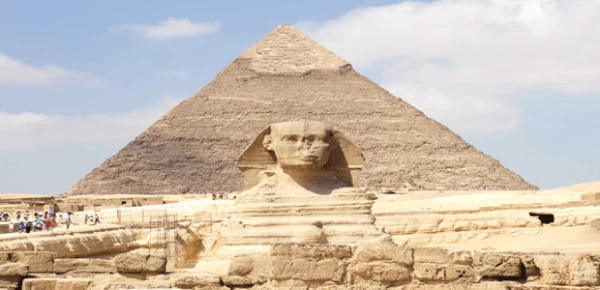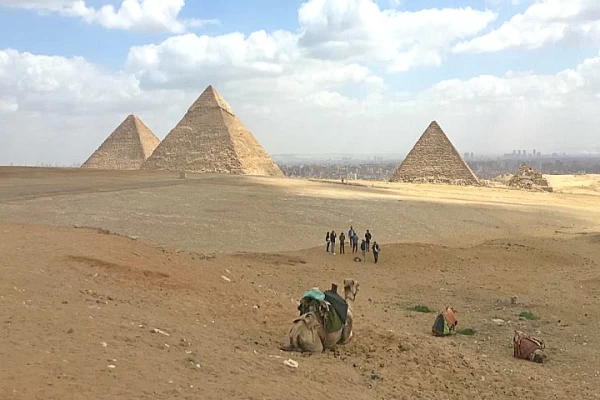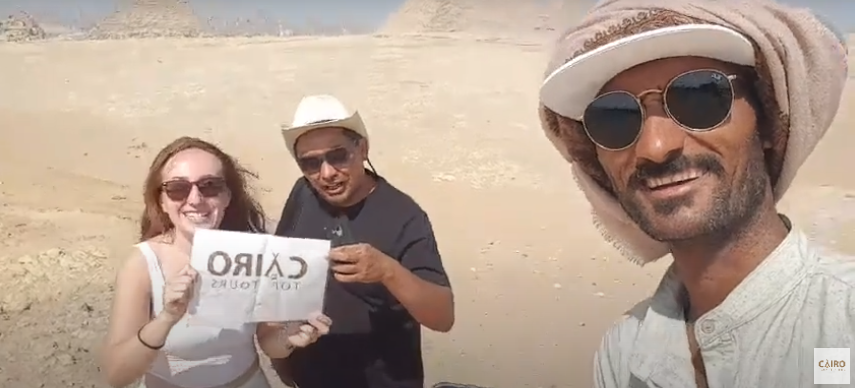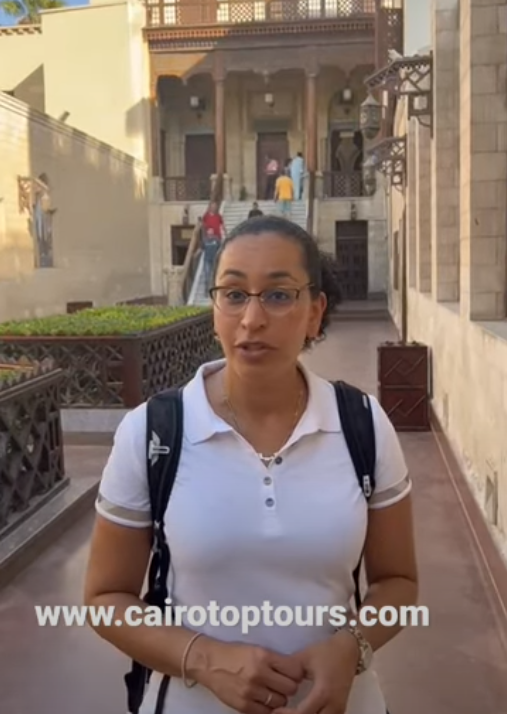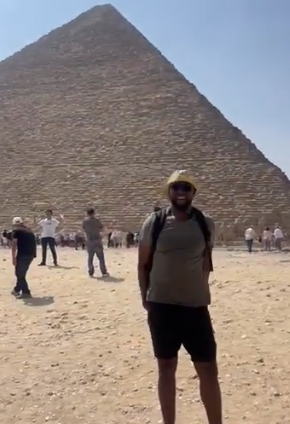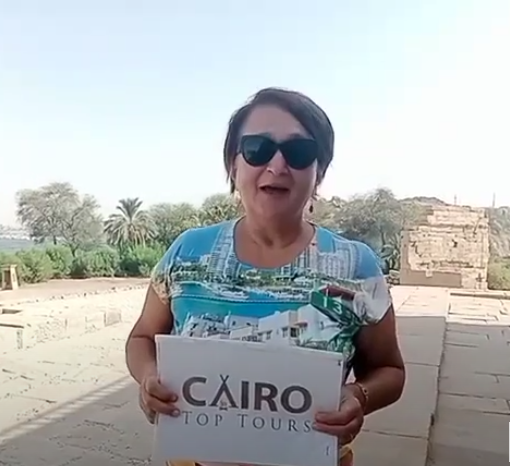Cheap Tour to Cairo and Sharm El Sheikh for 6 Days
Overview
Cheap Tour to Cairo and Sharm El Sheikh
With our Egypt Trips, start your trip off with us by taking in the Hurghada coast and the tourist attractions in Cairo. After seeing the majority of the important sites and the best things to do in Cairo. This tour is one of the most famous Egypt Travel Packages. This 6-day Cairo and Hurghada Budget Tour Package will enable you to realize your dream of experiencing the splendor of the Red Sea's crystal-clear water in Hurghada.
Cairo Day Tours are a variety of excursions in Cairo that you can take during Egypt Day Tours, but we did not forget to include fun and adventure, so we combined them all in this affordable 6-day Egypt tour. This is one of our suggested Egypt budget tours that enables you to experience the excitement of your trip to Egypt in The Best Beach Activities and Things to Do in Hurghada, as well.
The best private Egyptian Museum tour will astound you with the sheer volume of artifacts on display in one location. Along with traditional Egypt tours that include wonderful Giza Pyramids tours, Coptic Cairo tours, and shopping tours in Cairo. You will enjoy many educational tours of the most important landmarks of Cairo, which is considered one of the most important archaeological cities in the world.
Cheap Tour to Cairo and Sharm El Sheikh
With our Egypt Trips, start your trip off with us by taking in the Hurghada coast and the tourist attractions in Cairo. After seeing the majority of the important sites and the best things to do in Cairo. This tour is one of the most famous Egypt Travel Packages. This 6-day Cairo and Hurghada Budget Tour Package will enable you to realize your dream of experiencing the splendor of the Red Sea's crystal-clear water in Hurghada.
Cairo Day Tours are a variety of excursions in Cairo that you can take during Egypt Day Tours, but we did not forget to include fun and adventure, so we combined them all in this affordable 6-day Egypt tour. This is one of our suggested Egypt budget tours that enables you to experience the excitement of your trip to Egypt in The Best Beach Activities and Things to Do in Hurghada, as well.
The best private Egyptian Museum tour will astound you with the sheer volume of artifacts on display in one location. Along with traditional Egypt tours that include wonderful Giza Pyramids tours, Coptic Cairo tours, and shopping tours in Cairo. You will enjoy many educational tours of the most important landmarks of Cairo, which is considered one of the most important archaeological cities in the world.
Inclusion
- You will be welcomed and assisted by Cairo Top Tours upon arrival and departure.
- All Egypt Tour Packages Include Transportation Services in Non-Smoking, Air-Conditioned Vehicles.
- All sightseeing tours are done privately, as mentioned in the itinerary.
- A tour guide in your language will be provided.
- Shopping Tours in Cairo During Cairo Day Trips.
- All taxes and service charges.
Exclusion
- Any international flight tickets.
- Any extras not mentioned in the itinerary.
- any meals consumed during your 6-day budget tour of Cairo and Hurghada.
- Domestic flight tickets from Cairo to Hurghada and Hurghada to Cairo.
- Accommodation for 3 nights in a Cairo hotel, including breakfast.
- Accommodation for 2 nights in the Hurghada hotel on a full-board basis.
- The sites' entrance fees are not included.
- Tipping is not included in the itinerary of your 6-day budget tour.
Itinerary
When you arrive at Cairo International Airport, a representative from our company will be there to welcome you, accompany you to your hotel in Cairo, and help you with the check-in process.
This evening, an optional Cairo Nile dinner cruise is offered. You can enjoy a delicious dinner buffet while cruising the Nile River on a Nile cruise boat for an hour. A pleasant oriental show (belly dancing) and Taanoura dance show will keep you entertained.
Your tour guide will meet you today after you finish your open-buffet breakfast at the hotel and accompany you on your day trip from Cairo to the Giza Pyramids, Dahshur, and Memphis.
Your Cairo day tours should begin with a visit to the Giza Pyramids, where you will be astounded by their size. These enormous structures were built during the Old Kingdom of Ancient Egypt history by the most powerful kings and rulers as evidence of the success they attained 4500 years ago thanks to the Nile River.
See the Great Pyramid of King Cheops. King Cheops (Khufu in ancient Egyptian) built his pyramid using more than 2.3 million limestone blocks to serve as his eternal home from which he would ascend to heaven. The structure stood at a height of 146 meters 230 meters long for each side. King Cheops was influenced by his father's attempts to build enormous burial tombs.
passing by the high plateau to see the three pyramids of Cheops, Chephren, and Mycerinus in all their beauty. Son of Cheops, Chephren constructed his 136-meter-tall pyramid with some of the outer casing still present as a small tribute to his father.
Visit the Great Sphinx in Giza, a statue of a lion with a human head that is believed to have been created by King Chephren himself because it is located within his pyramid complex, and go inside the Valley Temple, where the king was mummified as part of the burial ritual.
Continue your sightseeing in Cairo by traveling to Memphis, an ancient city that is now known as Mit Rahina. Here, you can visit the open-air museum that features the second-largest sphinx made of alabaster and the enormous statue of King Ramses II, who was the most powerful ruler during the new kingdom.
Transfer to the Dahshur Archaeological Site to see the Red and Bent Pyramids, two of the four pyramids built for King Snefru, the 4th dynasty's founder and King Cheops' father. One of the most unusual pyramids in Egypt is the Bent Pyramid, which still has a significant amount of the outer casing material. The reddish color of the limestone blocks used to build the Red Pyramid helped to identify it, and it is regarded as the first perfectly shaped pyramid in Egyptian history.
After breakfast, take a flight from Cairo to Hurghada. At Hurghada Airport, you'll be met by a representative of ours who will drive you to the hotel and assist you with the check-in process. You can spend the rest of the day relaxing by the pool and watching the evening show, or you can choose to go on an optional Hurghada Bedouin Safari by Jeep at dusk or one of our other Hurghada excursions.
You will have a fun boat tour today to the Mahmya Islands from Hurghada. The tour begins when your guide drops you off at the location where you will board the boat and sail with designated stops for the best snorkeling and swimming experiences at one of the best naturally protected areas with a wide variety of fish and coral reefs. After you've finished your boat ride to Mahmya Island for snorkeling, take a transfer back to the hotel.
After enjoying a delicious buffet breakfast, you will be transferred to the airport to board your flight to Cairo. Upon arrival, you will meet your guide and transfer to the city's historic center for an educational Coptic Cairo tour. You will see the Hanging Church of the Holy Virgin Mary, which was constructed above the ruins of Babylon's Roman fortress, the Church of St. Sergius, also known as the cavern church, which houses the well where the holy family drank their water and other sites.
Enjoy your lunch at a reputable establishment. After that, we'll continue our Cairo day tours with an Egyptian Museum tour, where we'll see the oldest artifacts in Cairo's Egyptian Museum, which first opened to the public in 1902 and is home to the largest collection of antiquities.
Finally, you will be taken to Cairo's oldest market, Khan El Khalili Bazaar, for an unforgettable shopping experience.
You'll be driven to the hotel for check-in and your Cairo overnight stay.
After enjoying your delicious final breakfast in Egypt, you will be taken to the Cairo airport for your final departure. You can reserve our Saqqara from Cairo day trip if you have enough time left over from your 6 Days Cairo and Hurghada Tour Package before your flight. to see the first stone pyramid ever built, which was constructed about 200 years before the great Cheops pyramid in Giza.
Start from : $0
Check Availability

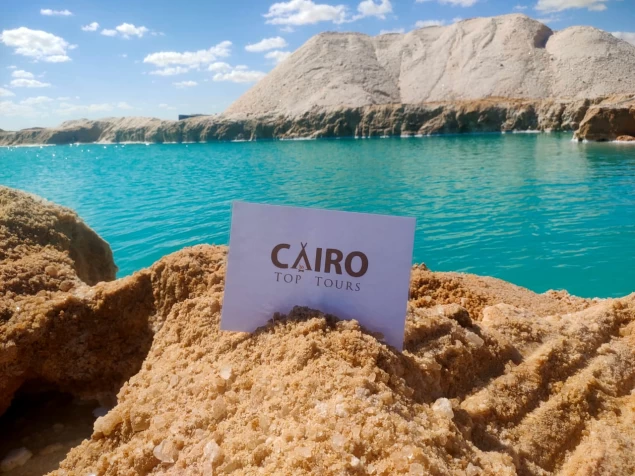
You Also May Like
Looking for something different? check out our related tour now, or simply contact us to tailor made your Egypt tour
3 Days Cheap Budget Tour to Cairo from USA
Explore Cairo's top attractions, such as the Saqqara Necropolis and the Pyramids of Giza on our 3-day budget tour. Enjoy an affordable stopover in Cairo with the best possible prices. Our well-organized 3-day short break in Cairo includes visits to the Egyptian Museum, Coptic Cairo, Khan El Khalili, and more!
The Best 5 Days Budget Holiday to Cairo and Alexandria
You will enjoy visiting the most prominent landmarks of Cairo and Alexandria, such as the Pyramids of Giza and its wonderful landmarks, and enjoying a tour of the city of Alexandria and seeing the Roman ruins with our 5 Days in Cairo and Alexandria Budget holiday.
The Best 8 Days Egypt Tour and Nile Cruise
During our Best 8-Day Egypt Tour and Nile Cruise, you will enjoy visiting the most prominent landmarks of Cairo, Luxor, and Aswan, such as the Pyramids of Giza and its wonderful landmarks on one of the most beautiful Nile Cruises.
5 Days Budget Tour to Cairo and Luxor
You will enjoy an unforgettable 5-day Budget Tour to Cairo and Luxor to explore the most prominent landmarks of Cairo and Luxor, such as the Pyramids of Giza and its wonderful landmarks.
Egypt Trips and Middle East Reviews
Egypt Tours has gained a lot of positive reviews from travelers who praise cheap Egypt tours as reflected in our social media accounts, TripAdvisor reviews, and YouTube videos. Customers love traveling through Egypt with expert guides who remain with them throughout their journey, vividly enlivening each site they visit, from Egypt to the Holy Land.
Egypt Tours is now bombarded with glowing comments and praises from travelers who appreciate our economical tours as seen for themselves on our social media pages, TripAdvisor reviews, and YouTube videos. Traveling through Egypt is just perfect for guests who are accompanied by our expert guides bringing history alive at each site visited by the tourist throughout the journey to the Holy Land.
As you can see from our social media accounts, Trip Advisor, and YouTube videos, Egypt Tours has received a lot of positive feedback from customers who love their low-cost tours of Egypt with our experts who accompany them everywhere in Egypt to show them the history of each site they visit during their tours of Egypt and the Holy Land. As you can see from our social media accounts, and YouTube videos, Egypt Day Tour has received a lot of positive feedback from customers who love their low-cost tours of Egypt with our experts who accompany them everywhere in Egypt to show them the history of each site they visit during their tours of Egypt and the Holy Land.
Egypt Tours FAQ
Read top Egypt tours FAQs
Cairo Top Tours' tour operators will customize your tours according to your budget and interests. You shouldn't worry about anything with us because we will take care of all the details of your vacation. That is why we provide a variety of travel alternatives that are affordable while providing an amazing vacation experience. We will work directly with you to ensure that you stay within your budget while enjoying the wonderful experiences. Please contact us immediately to learn more about our budget-friendly travel choices!
Egypt is considered one of the safest countries not only in the Arab world but in the world because Egypt has one of the strongest security services. The Egyptian government is interested in taking all the necessary safety measures to secure tourist trips in Egypt, so you do not have to worry about that at all.
The Egyptian government has announced the wonderful news that tourists from all over the world are waiting for, which is that the opening date of the upcoming Egyptian Museum is approaching. This museum is considered the most famous museum in the world at present because it includes a large collection of rare Pharaonic monuments.
In the case of cancellation of the trip by the customer, based on the start dates of the trip, the following costs will be charged:
15% of the total cost of the trip, with cancellation from the booking date up to 61 days before the start date of the trip
25% of the total cost of the trip, with cancellation from 60 to 31 days before the start date of the trip
35% of the total cost of the trip, with cancellation 30 to 15 days before the start date of the trip
Cairo Top Tours organizes many luxury tours that allow you to stay in the best and most luxurious hotels and cruises in Egypt and the Middle East, such as Dahabiya Nile Cruises, Movenpick Nile Cruises, and Mayfair Nile Cruises, and many other cruises.
Cairo top tours provide high-quality services at reasonable prices. Online, one can find classic tours starting from $700 to $1150. There are also discount coupons for certain destinations and hotels, and last-minute offers or multi-leg flights may lower the overall tour expenses. Booking system errors may even result in flights being available at a cheaper rate. We guarantee the best accommodation at top-rated hotels in various locations, such as Cairo, Luxor, Aswan, the Red Sea, and the Western Desert. During Egypt desert safari trips, we supply top-notch camping equipment.
We have multiple options for you to connect with us conveniently. These options include filling out our check availability forms located in our Egypt excursions and travel packages, contacting us via email, or reaching out through WhatsApp or phone at +201022772955. Our travel agency is located in the Masha'l district of Giza governate and we have representatives in various locations throughout Egypt to assist you during your travels. Furthermore, we have formed partnerships with agencies in Jordan, Dubai, Turkey, and other locations to provide a wide range of services.
All travelers to Egypt must have a valid passport and a travel visa. The visa can be easily purchased at the airport upon arrival. The cost of a 30-day single-entry tourist visa is $25, must be paid in cash (no credit or debit cards are accepted), and the passport must be valid for at least six months beyond the date you plan to leave Egypt. Citizens of all European countries, Australia, Canada, Japan, South Korea, New Zealand, Norway, Russia, Ukraine and the United States can obtain visas upon arrival. (Egypt allows visa-free access to some countries such as Bahrain, Hong Kong, Kuwait, Lebanon, Oman, Saudi Arabia, the United Arab Emirates, and Malaysia.) Visas can also be purchased in advance through Egypt's electronic visa portal, but it is much easier to purchase them at the airport. If your country is not listed above, you must apply for a visa at an Egyptian embassy or consulate in your country.
Booking your dream tour with Cairo Top Tours is a hassle-free and convenient experience. Our website provides personalized pricing options, an easy-to-use booking process, and comprehensive information about all of our tours. If you prefer to speak to one of our experienced tour operators, we have a Reservations Office open from 7:00 a.m. to 3:00 p.m. GMT. You can also contact us via WhatsApp at +2-01022772955. We are committed to making the reservation process as effortless as possible while providing excellent customer service for all inquiries. To enhance your browsing experience, you can limit your search to our website by entering our URL, cairotoptours.com, into your Google search bar. Let us help you create a memorable vacation that you will cherish forever.
At Cairo Top Tours, we take great pleasure in providing our valued clients with a variety of safe and secure payment options. We understand that payment plays a crucial role in the preparation of your trip, and our goal is to ensure that your experience is one of utmost satisfaction. As a result, we offer a wide range of payment methods for you to choose from. You can pay 50% of the total trip amount using one of the following methods, and the remaining balance can be paid in cash or with a POS upon arrival, with an additional commission fee if requested. -In case you select to pay by credit card, our dedicated tour consultant will provide you with a safe payment link, where you can enter your details without any worries. -Bank transfers are also accessible if you book your trip at least 30 days in advance, however the transfer must be completed within two working days of purchase. - You can pay by phone for last-minute bookings, however this option is only available for day trips, half-day excursions, and activities lasting less than one day.
Cairo Top Tours offers a distinguished collection of exciting safaris that will enable you to visit the most famous Egyptian oases and deserts to have the opportunity to relax, meditate, and get away from the hustle and bustle of the city. The most famous Egyptian oases and deserts that you should visit are Siwa Oasis, Dakhla Oasis, Kharga Oasis, Farfara Oasis, Black Desert, White Desert, and Bahariya Oasis.
If you are thinking of spending a special holiday in Egypt, Cairo Top Tours will organize the best program for you and your family. We will help you visit the most important religious shrines where the Holy Family resided during their visits to Egypt, such as the Church of Abu Serga and the Hanging Church.
Egypt is considered one of the safest countries in the world for tourists because, despite the current conflict between Egypt and Israel, which Egypt is trying to stop, Egypt keeps its security and its borders away from this conflict. The Egyptian government takes all necessary security measures to protect tourists, so you do not have to worry about traveling to Egypt anymore.
The Hot Air Balloon Ride is one of the best and most enjoyable experiences that you should not miss while you are in Egypt to see the splendor and beauty of the charming city of Luxor. You will be able to see the magnificent temples and stunning landscapes from the sky above Luxor.
When booking tours, including your mobile phone number can improve the entire experience for both you and the tour operator by permitting quick contact and keeping you informed of any trip updates. When making a reservation, remember to specify your country code to guarantee smooth communication. Emails may go unopened during vacations, thus adding your mobile number is critical.
There are a number of troubleshooting procedures you can use to address any problems you may have accessing a link on our website, Cairo Top Tours. Make sure your internet connection is strong before refreshing the page. If that doesn't work, try clearing the cookies and cache in your browser before trying to access the website again. We urge you to get in touch with our customer service team right once if none of these solutions work. Our qualified experts will examine the problem right away and take immediate action to fix it.
The trips offered by Cairo Top Tours are the best in Egypt. The tours we offer you are private and can be organized according to your interests, budget, and schedule.
Tipping is highly subjective, and while the local hosts enjoy any tips they receive, tips are not required, and the level of excellent service is not dependent on the expectation of a good tip. If you were satisfied with the service provided during your tour, a tip for the guide is appropriate but not required. While it may not be customary for you, it is critical for the individuals who will look after you throughout your trip, inspires outstanding loyalty, and is a well-known practice in many nations' tourism industries.
TThere are many wonderful Egyptian coastal cities where you can spend the Easter vacation and make the most beautiful memories with your friends and family. Cairo Top Tours will help you spend a very special holiday through the wonderful programs that we will organize for you in Egypt.
Cairo Top Tours is one of the best and most famous tourism companies in Egypt and in the Middle East because it provides you with a range of services that you will need from the beginning of the trip to its end, such as transportation services, domestic airline tickets, accommodation that includes hotels and cruises, meals, meet and assist services at the Airports, and many other services that will make your trip to Egypt more than wonderful.
Egypt has taken measures to ensure the safety of tourists, and many popular tourist destinations are considered safe to visit. However, it's always a good idea to stay updated on travel advisories and follow local guidelines.
The pyramids are considered supernatural engineering buildings because even though they were built thousands of years ago and were subjected to natural disasters such as earthquakes, floods, and demolition attempts by other peoples who invaded Egypt, they are still standing proudly and steadfastly until our present era.
Egypt is the most beautiful country to spend your Christmas because Egypt has a mild and cool weather throughout the year. The extreme cold will not prevent you from going out, hiking, and exploring this wonderful country. Cairo Top Tours offers you a wide range of Egypt Christmas Tours that will enable you to celebrate the New Year in many charming Egyptian cities.
Yes, generally, Egypt is considered a safe tourist destination, but it's important to take basic precautions and follow the local authorities' guidelines.
The pyramids are considered a scientific and astronomical miracle up to the present time. They are also a mystery that scientists cannot explain, despite the scientific progress and modern theories that they have come up with at the present time. The pyramids are located under the three largest stars in the galaxy. The height of the pyramid from the ground is the same as the distance between the sun and the earth. The weight of the granite stone at the top of the pyramid is 70 tons, and scientists were unable to explain how a stone of this size was placed on top of the pyramid.
The Egyptian civilization is considered one of the oldest and most famous civilizations in the world because the ancient Egyptians excelled in many sciences and were able to discover technologies that fascinate scientists in our current era, such as medicine, pharmacy, and astronomy. The documents left by the ancient Pharaohs about these sciences are still being studied until now.
The most important monuments of Sinai's religious tourism in Sinai, Egypt, known as the Sinai Development, are the information and secrets of the holy place where our master Mossi received the Ten Commandments as mentioned in the Jewish, Christian, and Islamic religions
The viewer from the top of the mountain is able to see beautiful scenes of the surrounding mountain range, especially in the sunrise and sunset periods, located near Mount Catherine (Mount Taur Sinai), where St. Catherine monastery is located, and surrounds the mountain with a range of South Sinai mountain peaks.
Are you ready to visit this holy mountain!
Cairo Top Tours is one of the most famous Egyptian tourism companies whose trips cover all the important Egyptian cities from northern to southern Egypt, including the most famous archaeological cities such as Luxor, Aswan, and Cairo, coastal cities such as Alexandria, Sharm El-Sheikh, and Hurghada, and picturesque Egyptian deserts such as Siwa Oasis and the Dakhla and Kharga Oasis and Farafra.
If any tourist from all over the world wants to visit the Middle East, Egypt is the first country that will come to mind because Egypt enjoys many rare cultural and recreational factors that you will not find in any other country. For example, Egypt enjoys a moderate and pleasant atmosphere throughout the year. Egypt enjoys many picturesque natural landscapes. During your stay in Egypt, you will be able to visit many amazing temples and archaeological sites, and the pyramids are the most famous of these landmarks.
The Red Sea is one of the longest and most beautiful seas in the world and extends over several countries. Tourists come from all over the world to enjoy diving and snorkelling in the crystal clear waters of the Red Sea and to see the rare marine creatures. There are many charming coastal cities overlooking the Red Sea, such as Hurghada, Sharm El Sheikh, and Dahab.
Egypt is one of the most famous and largest countries in the Arab world in the field of tourism because it has a history and civilization that exceeds seven thousand years. Egypt is the land of the great Pharaohs, where you will be able to see two of the most famous Seven Wonders of the World, which are the Great Pyramids of Giza and the Lighthouse of Alexandria. Egypt combines the aspect of its culture and history with the entertainment aspect that you will find in many coastal cities such as Sharm El Sheikh, Hurghada, and Alexandria.
Egypt is considered one of the most famous countries that has many antiquities and monuments in the world, and you can see these famous antiquities in Egyptian museums such as the National Museum of Egyptian Civilization, the Grand Egyptian Museum, and the Egyptian Museum in Tahrir. There are also many other Egyptian antiquities that have been transferred to foreign countries. During the foreign invasion of Egypt, such as the Hall of Egyptian Antiquities and Monuments was located in the Louvre Museum in Paris. Among the most famous artifacts in Egypt are the treasures of King Tutankhamun: King Tutankhamun’s mask made of gold weighing 150 kilograms, his golden throne chair made with unprecedented precision, and the king’s sword made of a stone that does not exist on planet Earth. Scientists explain This is because it was probably made from a meteorite that fell on Egypt in that era.
Just outside of Cairo, Egypt, on the Giza Plateau, is where you can see the Sphinx. It is situated close to the Giza Pyramids.
Egypt includes a number of unique museums and palaces that are gaining wide fame around the world. The most prominent of these museums is the Egyptian Museum in Tahrir, the National Museum of Egyptian Civilization, and the Grand Egyptian Museum, whose opening is eagerly awaited by tourists from all over the world. These museums contain a distinguished collection of dazzling Egyptian monuments that the world still cannot explain how they were manufactured. There are also many other palaces that serve as wonderful museums from different eras, such as the Baron Palace, the Palace of Mrs. Aisha Fahmy, and the Abdeen Palace. These palaces contain a huge collection of artistic artifacts.
Egypt is one of the most beautiful countries in the world because it has many picturesque natural landscapes, which will make you feel that these areas are imaginary, such as the white desert, Cleopatra springs, salt lakes, and the view of the stars in Wadi El Hitan.
There are many famous and beautiful cities that you must visit while you are in Egypt. Cairo, Luxor, and Aswan are three of the most famous archaeological cities that you must visit to learn about Egypt’s history and civilization. If you want to relax and spend a good time on the Egyptian beaches, Hurghada and Sharm El Sheikh are a great choice for you.
Cairo Top Tours is interested in providing many diverse long- and short-term trip programs to suit all types of travelers, their interests, and their budgets. Therefore, you only have to browse the distinguished programs that we offer you on our website.
There are all types of tourism available in Egypt that you could desire, such as medical tourism that you can enjoy in the Bahariya Oasis and Siwa Oasis, cultural and educational tourism in Luxor, Aswan, and Cairo, recreational tourism in Sharm El-Sheikh and Hurghada, safari in Siwa, the White Desert and many other oases.
Egypt is one of the most famous travel destinations in the world and has a civilization exceeding seven thousand years and its history is still being studied in many countries. Egypt has many of the Seven Wonders of the Ancient World, such as the Pyramids, which are internationally famous, not just at the level of the Arab world, and the Lighthouse of Alexandria.
Yes, generally, Egypt provides good healthcare services for tourists. There are many hospitals and specialized clinics in tourist areas. It's always essential to have health insurance to cover any emergencies and to check health requirements before traveling.
The Pharaohs constructed the temples, which you can visit to spend your vacation. One option is to travel to Luxor, a monument-rich city. You can travel to the Red Sea during the summer. Our organization provides a cost-effective way to travel to Egypt.
The word "oasis" originally came from Latin and Ancient Greek, which borrowed it from the Demotic Egyptian language. In a later form of Egyptian called Coptic, the word for oasis is "wahe" or "ouahe," which means a place where people live.
Yes, there are sound and light shows in Karnak Temple in Luxor. These shows are exciting experiences that provide visitors with a glimpse into the history of the site and ancient Egyptian civilization in a fun and impressive way.
These shows usually take place at night and use lighting and sound effects to show archaeological sites and introduce their history and stories. These offers add a special character to visiting the Valley of the Kings, as visitors can enjoy a unique and interactive experience that tells the history of the region in a different way
Luxor and Aswan are renowned for their rich historical and archaeological significance in ancient Egypt. Luxor is often called the "world's greatest open-air museum" due to its numerous temples, tombs, and monuments. Aswan is famous for the High Dam and the Philae Temple.
Seafood is a highlight, given its coastal location. You'll find a variety of international cuisines in the city, including Egyptian, Middle Eastern, and European options.
The Sofitel Winter Palace Luxor, Pavillon Winter Luxor, and Spirit Luxor Luxury are a few of the greatest upscale accommodations in Luxor that are close to the Luxor Temple.
Go see the dark and fiery Black Desert and the special White Desert made of a different kind of rock. After that, go for a fun swim in the oasis in the middle of the desert, and it's all included in the tour!
Khan el-Khalili is a very popular market in the old part of Cairo, Egypt. It's a place where people can go shopping and find lots of interesting things to buy.
KV2 is a special place where the body of a pharaoh named Ramesses IV is buried. It is like a big underground house for the pharaoh's body. This tomb was the one we liked the most in the Valley of the Kings. It's included in the main ticket. The hallway is long and has lots of pretty things to look at. Inside the tomb, there are lots of colorful pictures on the walls and ceiling.
Yes, many hotels in Luxor provide services and facilities that suit the needs of families. These hotels often include spacious accommodations, children's entertainment programs, and facilities for families. Here are some hotels that might be suitable for families in Luxor:
El Mesala Hotel
Nefertiti Hotel
Pyramids Luxor Hotel
Sofitel Luxor Luxor Hotel
The idea of an all-powerful god changed during the course of ancient Egyptian history. The sun god Ra was regarded as the most significant divinity in the Old Kingdom. Amun-Ra was identified during the New Kingdom with the concept of an all-powerful creator god. It's crucial to remember, though, that polytheistic ancient Egyptian religion placed a strong emphasis on the worship of several gods and goddesses.
Yes, you can visit some of Luxor's temples in the evening to see these historic places in a different atmosphere. Particularly the Luxor Temple is well-known for its captivating light and sound spectacle that happens after sundown. An engrossing environment is produced by the lit structures and told stories. When you visit the temples, it's a good idea to inquire about the precise times and whether night visits are available.
Yes, Egypt Classic Tours includes visits to famous historical sites. Tours are designed to include many of Egypt's notable historical attractions and places, such as the Pyramids in Giza, Karnak Temple in Luxor, Philae Temple in Aswan, Valley of the Kings in Luxor, and more.
Destinations are carefully selected to ensure a comprehensive and enjoyable experience for visitors, with opportunities to explore Egypt's rich culture and history.
For locations like Jerash, Petra, and Wadi Rum, where local narrative and knowledge add significance, depth, and even friendship to your experience, think about hiring a guide. You can enjoy Jordanian hospitality, learn from the people who know the country best, and support the local economy by spending time with local guides.
Cairo, the vibrant capital of Egypt, offers a wide range of excellent hotels to suit different preferences and budgets. Here is a list of some of the best hotels in Cairo:
Four Seasons Hotel Cairo at Nile Plaza: This luxury hotel offers stunning Nile River views, spacious rooms, world-class amenities, and multiple dining options.
Kempinski Nile Hotel Cairo: Situated on the banks of the Nile, this five-star hotel boasts elegant rooms, a rooftop pool, a relaxing spa, and several dining outlets.
The Nile Ritz-Carlton: Located in the heart of downtown Cairo, this iconic hotel offers luxurious accommodation, a rooftop bar with panoramic views, and direct access to the Egyptian Museum.
Marriott Mena House, Cairo: Situated near the Pyramids of Giza, this historic hotel offers a unique blend of modern comfort and traditional charm, along with stunning views of the pyramids.
InterContinental Cairo Semiramis: Overlooking the Nile River, this upscale hotel features well-appointed rooms, a rooftop pool, multiple restaurants, and a casino.
ONLY THE MAIN ONES IN EACH DYNASTY WILL BE DESCRIBED, AS THERE WERE AT LEAST 7 FEMALE PHARAOHS (CALLED QUEENS) AND 163 MALE PHARAOHS (CALLED KINGS) DURING THE 3,000 YEARS.
Wheelchair accessibility is not available for the excavations and opened chambers within the pyramids, however these are nonetheless accessible to physically fit travelers. Wheelchair users can only see the exterior of the pyramids, but they can still get a good idea of Khufu and Khafre via the streets and certain wheelchair-accessible pathways.
The winter months of November through February are the ideal times to visit Luxor because of the pleasant, moderate weather that makes them ideal for sightseeing and outdoor sports. Summertime temperatures in June, July, and August can reach over 40°C (104°F), making them exceptionally hot. It's crucial to wear sunscreen, drink plenty of water, and schedule your activities appropriately. Both the spring (March to May) and fall (September to October) have comfortable temperatures.
Secluded and close to Egypt's border with Libya, the Siwa Oasis is situated in the Western Desert. Notable features include its ageless history, distinct culture, and breathtaking natural beauty. Sand dunes, salt lakes, and palm groves surround the oasis, which provides guests with a serene and picturesque haven.
Families may find Egypt Classic Tours appropriate. Numerous travel companies provide family-friendly itineraries and age-appropriate activities. The tours frequently feature interactive activities, educational components, and flexible itineraries to meet the needs of families taking trips with kids. It is a good idea to confirm with the tour operator that the itinerary meets the needs of your family.
Sharm El Sheikh is one of the largest and most famous tourist cities in Egypt. It is located on the Red Sea coast at the confluence of the Suez Canal and the Gulf of Aqaba. It is the largest city in the South Sinai Governorate with an area of 480 square kilometers. It is characterized by a desert climate, as it does not experience much rainfall, and the average temperature in winter reaches 23 degrees Celsius.
This romantic retreat offers leisurely moments, cultural explorations, and breathtaking natural encounters. Couples can visit historic locations like the remains of Karanis, explore the well-known natural areas of Fayoum like Lake Qarun and Wadi El Rayan, and spend a romantic evening in a quaint eco-lodge or a desert tent beneath the stars.
Cairo Top Tours Partners
Check out our partners
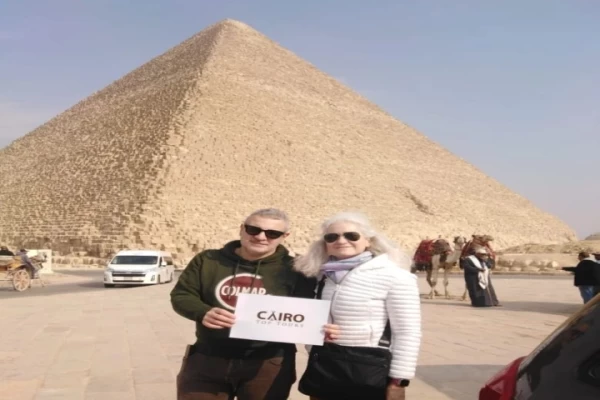
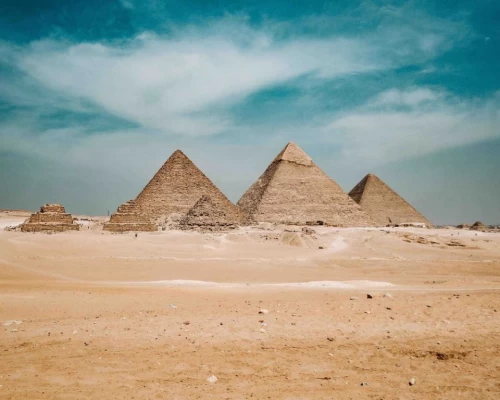
-webp.webp)
